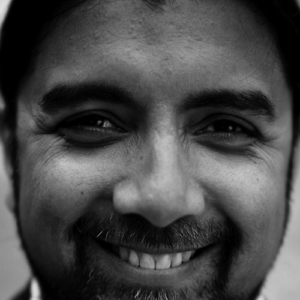
I cannot think of an interview or first time meeting with someone when we are not asked about experiences or situations that stand out amongst our journey through work. The odd thing about this is when you are asked this question at the age of 20, clearly your experience of education, front of house work, crewing backstage or even touring with a band will be short lived and you have probably not gained any true value yet for what may be to come.
We work in an industry that I believe is uniquely dynamic, comes with little accreditation or certification, has multiple industry sectors, no clear career path and yet one can go from stage-hand to company manager in a few years or be working in a regional arts venue one day and the next day off to a foreign location ready to work on a global event. Contentious as this is, the industry is based almost entirely on nepotism at key moments in your working life to steer you into new opportunities.
Experience does come with a health warning for those of you wondering where this is going. Experience is not the culmination of working in a job for many years or even doing many jobs successfully for many years. The secret for me is that experience comes when you grow personally and professionally through a moment or task that teaches you something you did not know or understand, something over and above the task itself, something that only comes from being outside of your comfort zone, for good or bad.
I am not going to write a thesis statement on experience but must admit if I could write something on the analogy of staying inside or stepping outside of your comfort zone then this would be interesting. Instead let me give you some personal experiences that I have been dining out on for many many years, experiences that become life stories that define the USP of my professional role today.
The scene is set with the usual ram shackled prep for a rehearsal by training actors and stage management students, I was in the lighting team and needed to reset the desk (old school desk with capacitors and resistors) and my dear friend Helen, designated stage manager, deciding to walk across the stage the moment that I called ‘GOING TO BLACK’ only I was not wearing my comms so nobody really heard me from the confines of my control position and then all I heard was the heavy duty thud of Helen hitting a piece of stage furniture and falling over it. Lights up to see Helen on the floor now with heavily bruised legs that I do not think ever healed. Lesson learnt to keep my comms on and to talk to everyone about what you are going to do, as you do it and work with the team around at all times.
At the young age of 22 I was made prop master on a period feature film set in the 1950s in the north of England. I was totally out of my comfort zone, skillset, knowledge and even capability but someone decided this was for me and I said ‘YES’. Full scale feature film on a cold summer’s day in Scarborough. I had gained little trust of the props team, mainly because they were all old enough to be my grandfathers and they could see through my self assured youth. So after a long morning of filming many of us were on the catering bus waiting for the lunch call and then the voice of Anne Scott, the producer, came up over the radio asking for me, ‘has anyone seen Ajay, can you get him down here to location number one please immediately?’ resulting in the chorus from all of the crew who could see me with a ‘wholly shit you better get down quick’. So I jumped in the car, drove down, and met the art director, producer, 1st AD at the top of the seafront wall high above the sea.
As I walked up to them Anne did not hesitate in asking if I had brought my swimming shorts as she looked out into the horizon. The problem was clear to see…all of the period props that I had placed carefully on the beach front for the morning shoot were now floating out to sea and never to return. At this moment let me remind you of the need for stating this was a period film, because all of the props had been especially made for the period and designed for each character. Thousands of pounds worth of props were now gone and these particular scenes could not be filmed for several weeks to come, at least until we could remake the props and find time to return to Scarborough with the cast and crew to complete the shots. Lesson learnt…never do props on a feature film again, and never say YES to everything, you do have limits.
I was working for a global event management company and working in collaboration with our European offices to produce a large scale pharmaceutical conference, and our job from the UK was to manage the logistics of over 5,000 delegates. As part of the production team we were responsible for print and graphics so naturally we put in an order of 5,500 plain white badges, badges that we could print overlay with delegate information when we were onsite. The usual scene the night before the event unpacking thousands of boxes in preparation for the final elements and then we get the call from one of the crew that the blank badges had arrived but we have a problem. The purchase order to the German supplier was very clear, 5,500 plain white badges – BLANK.
So what arrived was 5,500 plain white badges with the word BLANK written in bold across the front of the badge. Not what we needed or what we thought we asked for. A long night of paper, pritt-stick, and making good and we hashed something acceptable only to avoid the client’s glare when this subject came up several times during the conference. Lesson for me here is that through the global work we do we must always stop and talk through every bit of detail, especially when working across regions, languages and cultures. It is easy to send an email, purchase order or instruction with the assumption that everyone knows what you were thinking or wanting.
The above stories are in no way unique or even exclusive to me as I am sure many of you reading this will have stories to match and some with even greater consequences. The key is to remind everyone that it is OK to get things wrong as long as you learn from the mistakes and acknowledge your part in them. We all have something to learn from every scenario and everyone. It is only from making mistakes that we can test our own resolve and acumen to solve problems, put things right or even save the day. If we run through our careers thinking we have been getting it right all along then one day it is going to be an all mighty fall and the comfort of your successes may not prepare you for what is to come.
Do not to be afraid of making mistakes but more importantly be ready to step out of your comfort zone. As you do this more and more, and accumulate this thing called experience you will be stronger for it and your ability to spot a problem before it has become one or correct someone’s actions before it does more harm than good is when experience starts to have value.
Now for writing that book….anyone got any stories to send me.
Calling all Visionaries and Innovators
An Artistic Career: The Ultimate Paradox


Live Events Executive Producer with skills in global business operations and managing cross border multinational creative projects. Trained in Electrical, Electronic Engineering (Theatre) in Oldham, England followed by Stage and Production Management at Central School of Speech and Drama in London. After education I had a short career in the West End and in live touring music events before taking a full time job as Assistant Director at the BBC Films dept working on a wide range of television programmes and features films. I left the BBC 5yrs later to return to live events and have been applying my production skills across in full time and freelance roles ever since. I have spent the last 5yrs working across Asia with full time contracts at Imagination (Shanghai), JMW (Singapore), Quintessentially (India), MKTG (Asia) and Project Worldwide (APAC). I am currently based in Hong Kong. As an experience producer I work with highly skilled people and suppliers to turn a creative brief, a client proposition into reality. Having delivered projects in over 40 countries with global corporations, brands and private clients nothing surprises me. No brief is too small or too large, everything is possible with the right team, drive, planning and of course a client with a budget, brief and vision. I continue to enjoy life and work in this uniquely challenging and creative industry with theatre at the heart of everything I do.
Read Full Profile© 2021 TheatreArtLife. All rights reserved.

Thank you so much for reading, but you have now reached your free article limit for this month.
Our contributors are currently writing more articles for you to enjoy.
To keep reading, all you have to do is become a subscriber and then you can read unlimited articles anytime.
Your investment will help us continue to ignite connections across the globe in live entertainment and build this community for industry professionals.